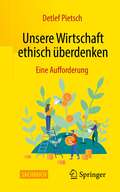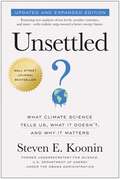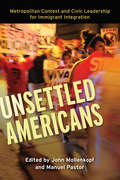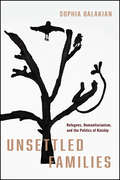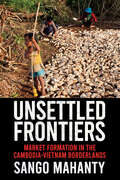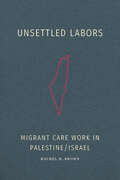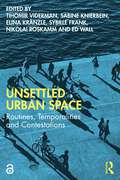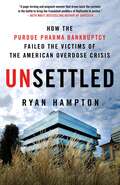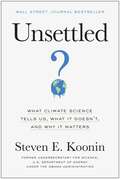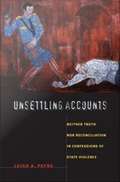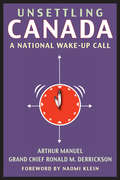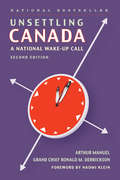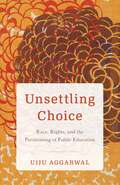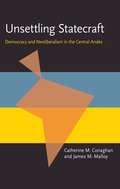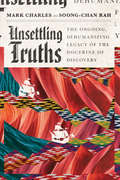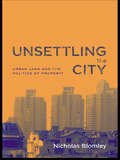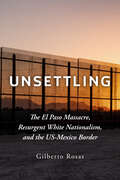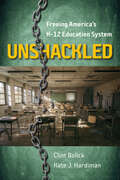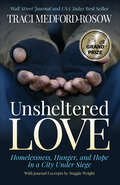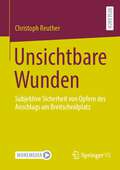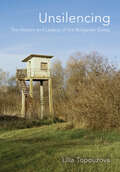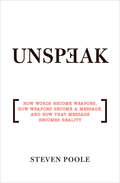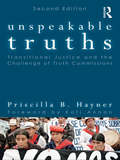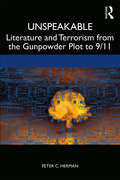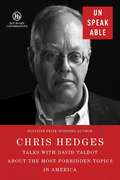- Table View
- List View
Unsere Wirtschaft ethisch überdenken: Eine Aufforderung
by Detlef PietschEs läuft ganz und gar nicht rund in unserer Wirtschaft: Kam bereits vor der Pandemie der Wohlstand nicht mehr bei allen an, wurde die soziale Ungleichheit durch Corona noch weiter verschärft. Von Bildungsgerechtigkeit konnte spätestens zu Zeiten von Homeschooling nicht mehr die Rede sein. Zusätzlich bedrohte Hochwasser im Sommer 2021 einige Gebiete in Deutschland und hinterließ viele Tote. Einige verloren in kurzer Zeit ihr Hab und Gut und standen buchstäblich vor dem Nichts. Der Klimawandel ist nicht mehr zu leugnen, er hat uns alle mit Wucht erfasst. Dass wir die Ökonomie dringend mit der Ökologie versöhnen müssen, ist mittlerweile allen klar. Die Frage ist lediglich, wie das konkret aussehen soll. Nehmen wir diese Ereignisse als Aufforderung, intensiv darüber nachzudenken und zu diskutieren, wie wir unsere Wirtschaft ethisch auf ein neues Niveau heben können.
Unsettled (Updated and Expanded Edition): What Climate Science Tells Us, What It Doesn't, and Why It Matters
by Steven E. KooninIn this updated and expanded edition of climate scientist Steven Koonin&’s groundbreaking book, go behind the headlines to discover the latest eye-opening data about climate change—with unbiased facts and realistic steps for the future. "Greenland&’s ice loss is accelerating." "Extreme temperatures are causing more fatalities." "Rapid 'climate action' is essential to avoid a future climate disaster." You've heard all this presented as fact. But according to science, all of these statements are profoundly misleading. With the new edition of Unsettled, Steven Koonin draws on decades of experience—including as a top science advisor to the Obama administration—to clear away the fog and explain what science really says (and doesn't say). With a new introduction, this edition now features reflections on an additional three years of eye-opening data, alternatives to unrealistic &“net zero&” solutions, global energy inequalities, and the energy crisis arising from the war in Ukraine. When it comes to climate change, the media, politicians, and other prominent voices have declared that &“the science is settled.&” In reality, the climate is changing, but the why and how aren&’t as clear as you&’ve probably been led to believe. Koonin takes readers behind the headlines, dispels popular myths, and unveils little-known truths: Despite rising greenhouse gas emissions, global temperatures decreased from 1940 to 1970 Models currently used to predict the future do not accurately describe the climate of the past, and modelers themselves strongly doubt their regional predictions There is no compelling evidence that hurricanes are becoming more frequent—or that predictions of rapid sea level rise have any validity Unsettled is a reality check buoyed by hope, offering the truth about climate science—what we know, what we don&’t, and what it all means for our future.
Unsettled Americans: Metropolitan Context and Civic Leadership for Immigrant Integration
by Manuel Pastor John MollenkopfThe politics of immigration have heated up in recent years as Congress has failed to adopt comprehensive immigration reform, the President has proposed executive actions, and state and local governments have responded unevenly and ambivalently to burgeoning immigrant communities in the context of a severe economic downturn. Moreover we have witnessed large shifts in the locations of immigrants and their families between and within the metropolitan areas of the United States. Charlotte, North Carolina, may be a more active and dynamic immigrant destination than Chicago, Illinois, while the suburbs are receiving ever more immigrants. The work of John Mollenkopf, Manuel Pastor, and their colleagues represents one of the first systematic comparative studies of immigrant incorporation at the metropolitan level. They consider immigrant reception in seven different metro areas, and their analyses stress the differences in capacity and response between central cities, down-at-the-heels suburbs, and outer metropolitan areas, as well as across metro areas. A key feature of case studies in the book is their inclusion of not only traditional receiving areas (New York, Chicago, and Los Angeles) but also newer ones (Charlotte, Phoenix, San Jose, and California's "Inland Empire"). Another innovative aspect is that the authors link their work to the new literature on regional governance, contribute to emerging research on spatial variations within metropolitan areas, and highlight points of intersection with the longer-term processes of immigrant integration. Contributors: Els de Graauw, CUNY; Juan De Lara, University of Southern California; Jaime Dominguez, Northwestern University; Diana Gordon, CUNY; Michael Jones-Correa, Cornell University; Paul Lewis, Arizona State University; Doris Marie Provine, Arizona State University; John Mollenkopf, CUNY; Manuel Pastor, University of Southern California; Rachel Rosner, independent consultant, Florida; Jennifer Tran, City of San Francisco
Unsettled Families: Refugees, Humanitarianism, and the Politics of Kinship (Stanford Studies in Human Rights)
by Sophia Balakian Ph.D.Against the backdrop of the global refugee crisis, Unsettled Families investigates the parameters that Global North governments and international humanitarian organizations use to classify most displaced families—more than 99% globally—as ineligible for resettlement, and often as fraudulent. But "fraud" as a category is not as self-evident as it may first appear. Nor is "the family." Based on long-term fieldwork between Nairobi, Kenya and Columbus, Ohio, Sophia Balakian tells stories of Somali and Congolese refugees navigating a complicated global assemblage of humanitarian organizations, immigration bureaucracies, and national security agencies as they seek permanent, new homes. Viewing the concepts of "fraud" and "family" from different vantage points in this context, Balakian shows how the categories begin to blur out of focus, sometimes to evaporate altogether; what seems to be contained within them scatter outside their received boundaries. Practices that resettlement organizations deem fraudulent are often understood by people living as refugees to be moral actions in an unequal world. Such practices allow them to fulfill obligations to kin—kin defined expansively, in ways that at times exceed the boundaries of normative, US frameworks. Bringing questions of kinship into current discussions on humanitarianism, Balakian locates "the family" as a crucial category in processes of producing, policing, and contesting the boundaries of nation-states in the 21st century.
Unsettled Frontiers: Market Formation in the Cambodia-Vietnam Borderlands
by Sango MahantyUnsettled Frontiers provides a fresh view of how resource frontiers evolve over time. Since the French colonial era, the Cambodia-Vietnam borderlands have witnessed successive waves of market integration, migration, and disruption. The region has been reinvented and depleted as new commodities are exploited and transplanted: from vast French rubber plantations to the enforced collectivization of the Khmer Rouge; from intensive timber extraction to contemporary crop booms. The volatility that follows these changes has often proved challenging to govern. Sango Mahanty explores the role of migration, land claiming, and expansive social and material networks in these transitions, which result in an unsettled frontier, always in flux, where communities continually strive for security within ruptured landscapes.
Unsettled Labors: Migrant Care Work in Palestine/Israel
by Rachel H. BrownIn Unsettled Labors, Rachel H. Brown explores the overlooked labor of migrant workers in Israel’s eldercare industry. Brown argues that live-in eldercare in Palestine/Israel, which is primarily done by migrant workers, is an often invisible area where settler colonialism is reproduced culturally, economically, and biologically. Situating Israeli labor markets within a longer history of imperialism and dispossession of Palestinian land, Brown positions migrant eldercare within the resulting tangle of Israeli laws, policies, and social discourses. She draws from interviews with caretakers, public statements, court documents, and first-hand fieldwork to uncover the inherently contradictory nature of elder care work: the intimate presence of South and Southeast Asian workers in the home unsettles the idea of the Israeli home as an exclusively Jewish space. By paying close attention to the comparative racialization of migrant workers, Palestinians, asylum seekers, and Mizrahi and Ashkenazi settlers, Brown raises important questions of labor, social reproduction, displacement, and citizenship told through the stories of collective care provided by migrant workers in a settler colonial state.
Unsettled Urban Space: Routines, Temporalities and Contestations
by Sabine Knierbein Ed Wall Tihomir Viderman Sybille Frank Nikolai Roskamm Elina KränzleWhile urban life can be characterized by endeavors to settle stable and safe environments, for many people, urban space is rarely stable or safe; it is uncertain, troubled, imbued with challenges and perpetually under pressure. As the concept of unsettled appears to define the contemporary urban experience, this multidisciplinary book investigates the conflicts and possibilities of settling and unsettling through open and speculative analysis. The analytical prism of unsettled renders urban space an indeterminate ground unfolding through routines, temporalities and contestations in constant tension between settling and unsettling. Such contrasting experiences are contingent on how urban societies confront, undergo and overcome turbulence and difficulties in time and space. Contributions drawing on theoretical reflections and empirical accounts—from Argentina, Austria, Germany, Greece, Italy, the Netherlands, the UAE, the UK, the USA and Vietnam—give insights into plural occurrences of the unsettled, which might tie down or unleash transformative, liberatory and emancipatory potentials. This book is for students, professionals and researchers interested in the uncertainties, foundations, disturbances, inconsistencies, residuals and blind fields, which constitute the urban both as lived space and as social, cultural and political ideal.
Unsettled: How the Purdue Pharma Bankruptcy Failed the Victims of the American Overdose Crisis
by Ryan HamptonA shocking inside account of reckless capitalism and injustice in the Purdue Pharma bankruptcy case.In September 2019, Purdue Pharma—the maker of OxyContin and a company controlled by the infamous billionaire Sackler family—filed for bankruptcy to protect itself from 2,600 lawsuits for its role in fueling the U.S. overdose crisis. Author and activist Ryan Hampton served as co-chair of the official creditors committee that acted as a watchdog during the process, one of only four victims appointed among representatives of big insurance companies, hospitals, and pharmacies. He entered the case believing that exposing the Sacklers and mobilizing against Purdue would be enough to right the scales of justice. But he soon learned that behind closed doors, justice had plenty of other competition—and it came with a hefty price tag.Unsettled is the inside story of Purdue’s excruciating Chapter 11 bankruptcy proceedings, the company’s eventual restructuring, and the Sackler family’s evasion of any true accountability. It’s also the untold story of how a group of determined ordinary people tried to see justice done against the odds—and in the face of brutal opposition from powerful institutions and even government representatives. Although America was envisioned as an equitable place, where the vulnerable are protected from the greed of the powerful, the corporate-bankruptcy process betrays those values. In its heart of hearts, this system is built to shield the ultra-wealthy, exploit loopholes for political power, promote gross wealth inequality, and allow companies such as Purdue Pharma to run amok.The real story of the Purdue bankruptcy wasn’t that the billion-dollar corporation was a villain, a serial federal offender. No matter what the media said, Purdue didn’t do this alone. They were aided and abetted by the very systems and institutions that were supposed to protect Americans. Even on-your-side elected officials worked against Purdue’s victims—maintaining the status quo at all costs.Americans deserve to know exactly who is responsible for failing to protect people over profits—and what a human life is worth to corporations, billionaires, and lawmakers. Unsettled is what happened behind closed doors—the story of a sick, broken system that destroyed millions of lives and let the Sacklers off almost scot-free.
Unsettled: What Climate Science Tells Us, What It Doesn't, and Why It Matters
by Steven E. KooninWALL STREET JOURNAL BESTSELLER 2022 IPPY AWARDS GOLD MEDALIST — SCIENCE NATIONAL INDIE EXCELLENCE AWARDS FINALIST — POLITICAL 2021 WORLD MAGAZINE ACCESSIBLE SCIENCE BOOK OF THE YEAR — HONORABLE MENTION "Unsettled is a remarkable book—probably the best book on climate change for the intelligent layperson—that achieves the feat of conveying complex information clearly and in depth." —Claremont Review of Books &“[Unsettled] is no polemic. It&’s a plea for understanding how scientists extract clarity from complexity.&” — Wall Street Journal "Surging sea levels are inundating the coasts." "Hurricanes and tornadoes are becoming fiercer and more frequent." "Climate change will be an economic disaster." You've heard all this presented as fact. But according to science, all of these statements are profoundly misleading. When it comes to climate change, the media, politicians, and other prominent voices have declared that "the science is settled." In reality, the long game of telephone from research to reports to the popular media is corrupted by misunderstanding and misinformation. Core questions—about the way the climate is responding to our influence, and what the impacts will be—remain largely unanswered. The climate is changing, but the why and how aren't as clear as you've probably been led to believe. Now, one of America's most distinguished scientists is clearing away the fog to explain what science really says (and doesn't say) about our changing climate. In Unsettled: What Climate Science Tells Us, What It Doesn't, and Why It Matters, Steven Koonin draws upon his decades of experience—including as a top science advisor to the Obama administration—to provide up-to-date insights and expert perspective free from political agendas. Fascinating, clear-headed, and full of surprises, this book gives readers the tools to both understand the climate issue and be savvier consumers of science media in general. Koonin takes readers behind the headlines to the more nuanced science itself, showing us where it comes from and guiding us through the implications of the evidence. He dispels popular myths and unveils little-known truths: despite a dramatic rise in greenhouse gas emissions, global temperatures actually decreased from 1940 to 1970. What's more, the models we use to predict the future aren't able to accurately describe the climate of the past, suggesting they are deeply flawed. Koonin also tackles society's response to a changing climate, using data-driven analysis to explain why many proposed "solutions" would be ineffective, and discussing how alternatives like adaptation and, if necessary, geoengineering will ensure humanity continues to prosper. Unsettled is a reality check buoyed by hope, offering the truth about climate science that you aren't getting elsewhere—what we know, what we don't, and what it all means for our future.
Unsettling Accounts: Neither Truth Nor Reconciliation in Confessions of State Violence
by Leigh A. PayneAn Argentine naval officer remorsefully admits that he killed thirty people during Argentina's Dirty War. A member of General Augusto Pinochet's intelligence service reveals on a television show that he took sadistic pleasure in the sexual torture of women in clandestine prisons. A Brazilian military officer draws on his own experiences to write a novel describing the military's involvement in a massacre during the 1970s. The head of a police death squad refuses to become the scapegoat for apartheid-era violence in South Africa; he begins to name names and provide details of past atrocities to the Truth Commission. Focusing on these and other confessions to acts of authoritarian state violence, Leigh A. Payne asks what happens when perpetrators publicly admit or discuss their actions. While mechanisms such as South Africa's Truth and Reconciliation Commission are touted as means of settling accounts with the past, Payne contends that public confessions do not settle the past. They are unsettling by nature. Rather than reconcile past violence, they catalyze contentious debate. She argues that this debate--and the public confessions that trigger it--are healthy for democratic processes of political participation, freedom of expression, and the contestation of political ideas. Payne draws on interviews, unedited television film, newspaper archives, and books written by perpetrators to analyze confessions of state violence in Argentina, Chile, Brazil, and South Africa. Each of these four countries addressed its past through a different institutional form--from blanket amnesty, to conditional amnesty based on confessions, to judicial trials. Payne considers perpetrators' confessions as performance, examining what they say and what they communicate nonverbally; the timing, setting, and reception of their confessions; and the different ways that they portray their pasts, whether in terms of remorse, heroism, denial, or sadism, or through lies or betrayal.
Unsettling Canada: A National Wake-Up Call
by Naomi Klein Arthur Manuel Grand Chief Grand Chief DerricksonUnsettling Canada is built on a unique collaboration between two First Nations leaders, Arthur Manuel and Grand Chief Ron Derrickson.Both men have served as chiefs of their bands in the B.C. interior and both have gone on to establish important national and international reputations. But the differences between them are in many ways even more interesting. Arthur Manuel is one of the most forceful advocates for Aboriginal title and rights in Canada and comes from the activist wing of the movement. Grand Chief Ron Derrickson is one of the most successful Indigenous businessmen in the country.Together the Secwepemc activist intellectual and the Syilx (Okanagan) businessman bring a fresh perspective and new ideas to Canada’s most glaring piece of unfinished business: the place of Indigenous peoples within the country’s political and economic space. The story is told through Arthur’s voice but he traces both of their individual struggles against the colonialist and often racist structures that have been erected to keep Indigenous peoples in their place in Canada.In the final chapters and in the Grand Chief’s afterword, they not only set out a plan for a new sustainable indigenous economy, but lay out a roadmap for getting there.
Unsettling Canada: A National Wake-up Call
by Arthur Manuel Grand Chief Ronald M. DerricksonA Canadian bestseller and winner of the 2016 Canadian Historical Association Aboriginal History Book Prize, Unsettling Canada is a landmark text built on a unique collaboration between two First Nations leaders. Arthur Manuel (1951–2017) was one of the most forceful advocates for Indigenous title and rights in Canada; Grand Chief Ron Derrickson, one of the most successful Indigenous businessmen in the country. Together, they bring a fresh perspective and bold new ideas to Canada’s most glaring piece of unfinished business: the place of Indigenous peoples within the country’s political and economic space. This vital second edition features a foreword by award-winning activist Naomi Klein and an all-new chapter co-authored by law professor Nicole Schabus and Manuel’s daughter, Kanahus, honouring the multi-generational legacy of the Manuel family’s work.
Unsettling Choice: Race, Rights, and the Partitioning of Public Education
by Ujju AggarwalHow the Great Recession revealed a system of school choice built on crisis, precarity, and exclusion What do universal rights to public goods like education mean when codified as individual, private choices? Is the &“problem&” of school choice actually not about better choices for all but, rather, about the competition and exclusion that choice engenders—guaranteeing a system of winners and losers? Unsettling Choice addresses such questions through a compelling ethnography that illuminates how one path of neoliberal restructuring in the United States emerged in tandem with, and in response to, the Civil Rights movement. Drawing on ethnographic research in one New York City school district, Unsettling Choice traces the contestations that surfaced when, in the wake of the 2007–2009 Great Recession, public schools navigated austerity by expanding choice-based programs. Ujju Aggarwal argues that this strategy, positioned as &“saving public schools,&” mobilized mechanisms rooted in market logics to recruit families with economic capital on their side, thereby solidifying a public sphere that increasingly resembled the private—where contingency was anticipated and rights for some were marked by intensified precarity for poor and working-class Black and Latinx families. As Unsettling Choice shows, these struggles over public schools—one of the last remaining universal public goods in the United States—were entrapped within neoliberal regimes that exceeded privatization and ensured exclusion even as they were couched in language of equity, diversity, care, and rights. And yet this richly detailed and engaging book also tracks an architecture of expansive rights, care, and belonging built among poor and working-class parents at a Head Start center, whose critique of choice helps us understand how we might struggle for—and reimagine—justice, and a public that remains to be won. Retail e-book files for this title are screen-reader friendly with images accompanied by short alt text and/or extended descriptions.
Unsettling Statecraft: Democracy and Neoliberalism in the Central Andes
by Catherine M. Conaghan James M. MalloyA look at the politics and economics of Central American countries.
Unsettling Truths: The Ongoing, Dehumanizing Legacy of the Doctrine of Discovery
by Soong-Chan Rah Mark CharlesYou cannot discover lands already inhabited.
Unsettling the City: Urban Land and the Politics of Property
by Nicholas BlomleyShort and accessible, this book interweaves a discussion of the geography of property in one global city, Vancouver, with a more general analysis of property, politics, and the city.
Unsettling: The El Paso Massacre, Resurgent White Nationalism, and the US-Mexico Border
by Gilberto RosasDocuments the cruel immigration policies and treatment toward border crossers on the US-Mexico border.On August 3, 2019, a far-right extremist committed a deadly mass shooting at a major shopping center in El Paso, Texas, a city on the border of the United States and Mexico. In Unsettling, Gilberto Rosas situates this devastating shooting as the latest unsettling consequence of our border crisis and currents of deeply rooted white nationalism embedded in the United States. Tracing strict immigration policies and inhumane border treatment from the Clinton era through Democratic and Republican administrations alike, Rosas shows how the rhetoric around these policies helped lead to the Trump administration's brutal crackdown on migration—and the massacre in El Paso. Rosas draws on poignant stories and compelling testimonies from workers in immigrant justice organizations, federal public defenders, immigration attorneys, and human rights activists to document the cruelties and indignities inflicted on border crossers. Borders, as sites of crossings and spaces long inhabited by marginalized populations, generate deep anxiety across much of the contemporary world. Rosas demonstrates how the Trump administration amplified and weaponized immigration and border policy, including family separation, torture, and murder. None of this dehumanization and violence was inevitable, however. The border zone in El Paso (which translates to "the Pass") was once a very different place, one marked by frequent and inconsequential crossings to and from both sides—and with more humane immigration policies, it could become that once again.
Unshackled: Freeing America’s K–12 Education System
by Clint Bolick Kate J. HardimanClint Bolick and Kate J. Hardiman begin with a thought experiment: how would we structure a 21st-century K–12 school system if we were starting from scratch, attending to contemporary parental needs and harnessing the power of technology? Maintaining that the status quo is unacceptable, they take a forward-thinking look at how choice, competition, deregulation, and decentralization can create disruptive innovation and reform education for all students.The US Supreme Court proclaimed 65 years ago in Brown v. Board of Education that our schools must provide equal educational opportunities, but as Bolick and Hardiman argue we have yet to make good on that promise. School systems are bound to antiquated structures, outdated technology, and bureaucratic systems that work for adults, not children. The COVID-19 pandemic has highlighted how ossified the traditional public school system has become. Today's ruptures in traditional learning create opportunity for reinvention. Unshackled explains that technology can redefine the ways students learn in and out of the classroom and highlights the benefits of expanding educational freedom so that families are able to choose an education that fits their child's needs.
Unsheltered Love: Homelessness, Hunger and Hope in a City Under Siege
by Traci Medford-RosowUnsheltered Love provides a first-hand reported account of how the homeless in New York City survived the pandemic.
Unsichtbare Wunden: Subjektive Sicherheit von Opfern des Anschlags am Breitscheidplatz
by Christoph ReutherSpätestens seit den Anschlägen am 11. September 2001 ist der islamistische Terrorismus in westlichen Ländern angekommen, so auch in Deutschland. Der Angriff am Breitscheidplatz in Berlin hinterließ neben 13 Toten eine Vielzahl von Verletzten, die teils Jahre später noch unter den Folgen leiden, darunter Panikattacken und Flashbacks. Wie geht es diesen Menschen heute? Leiden sie weiterhin unter den psychischen Folgen? Wie beurteilen sie die staatlichen Reaktionen auf den Angriff? Die Untersuchung greift jene Fragen auf und nimmt mit dem Blick auf die subjektive Sicherheit eine Opferperspektive ein.
Unsilencing: The History and Legacy of the Bulgarian Gulag
by Lilia TopouzovaUnsilencing provides the first comprehensive study of Bulgaria's forced-labor camps, a network of repression that operated throughout the communist era from 1945 to 1989. Lilia Topouzova uncovers the hidden histories of these camps, often referred to as Bulgaria's "Little Siberia," where thousands were interned without trial, subjected to inhumane conditions, and silenced for decades.Drawing on two decades of archival research, oral history interviews with survivors and perpetrators, and an array of primary sources, Topouzova reconstructs the harrowing reality of life behind barbed wire. She explores how the communist regime systematically used these camps to suppress dissent, target minority groups, and instill fear across the population. Unsilencing presents detailed accounts of key sites like the Belene and Lovech camps, revealing the brutalities endured by prisoners and the lasting scars these places left on Bulgarian society.More than a historical recounting, Unsilencing examines the post-1989 period and how Bulgaria has grappled—or often failed to grapple—with its recent past. Topouzova assesses the country's efforts at transitional justice, including the short-lived truth commission and trials that sought to hold perpetrators accountable. She argues that the legacy of the gulag has been largely forgotten and deliberately obscured, leaving a vacuum in Bulgaria's collective memory that continues to affect its society and politics today.
Unspeak: How Words Become Weapons, How Weapons Become a Message, and How That Message Becomes Reality (Books That Changed the World)
by Steven Poole“A sharply articulated, well-documented expos of the political and economic manipulation of language . . . Fans of Orwell, take heart.”—Kirkus ReviewsWhat do the phrases “pro-life,” “intelligent design,” and “the war on terror” have in common? Each of them is a name for something that smuggles in a highly charged political opinion. Words and phrases that function in this special way go by many names. Some writers call them “evaluative-descriptive terms.” Others talk of “terministic screens” or discuss the way debates are “framed.” Author Steven Poole calls them Unspeak. Unspeak represents an attempt by politicians, interest groups, and business corporations to say something without saying it, without getting into an argument and so having to justify itself. At the same time, it tries to unspeak—in the sense of erasing or silencing—any possible opposing point of view by laying a claim right at the start to only one way of looking at a problem. Recalling the vocabulary of George Orwell’s 1984, as an Unspeak phrase becomes a widely used term of public debate, it saturates the mind with one viewpoint while simultaneously makes an opposing view ever more difficult to enunciate. In this fascinating book, Poole traces modern Unspeak and reveals how the evolution of language changes the way we think.“Unspeak deserves a place in every journalist’s vocabulary.”—Slate“This book takes no word at face value, which will anger some and enlighten others, just as a book of social and linguistic commentary should.”—Publishers Weekly“As we approach yet another political campaign season, this remarkable new book examines the intersection where words and politics collide.”—Tucson Citizen
Unspeakable Truths: Transitional Justice and the Challenge of Truth Commissions
by Priscilla B. HaynerIn a sweeping review of forty truth commissions, Priscilla Hayner delivers a definitive exploration of the global experience in official truth-seeking after widespread atrocities. When Unspeakable Truths was first published in 2001, it quickly became a classic, helping to define the field of truth commissions and the broader arena of transitional justice. This second edition is fully updated and expanded, covering twenty new commissions formed in the last ten years, analyzing new trends, and offering detailed charts that assess the impact of truth commissions and provide comparative information not previously available. Placing the increasing number of truth commissions within the broader expansion in transitional justice, Unspeakable Truths surveys key developments and new thinking in reparations, international justice, healing from trauma, and other areas. The book challenges many widely-held assumptions, based on hundreds of interviews and a sweeping review of the literature. This book will help to define how these issues are addressed in the future.
Unspeakable: Literature and Terrorism from the Gunpowder Plot to 9/11
by Peter C. HermanUnspeakable: Literature and Terrorism from the Gunpowder Plot to 9/11 explores the representation of terrorism in plays, novels, and films across the centuries. Time and time again, writers and filmmakers including William Shakespeare, Joseph Conrad, Henry James, Gillo Pontecorvo, Don DeLillo, John Updike, and Steven Spielberg refer to terrorist acts as beyond comprehension, “a deed without a name,” but they do not stop there. Instead of creating works that respond to terrorism by providing comforting narratives reassuring audiences and readers of their moral superiority and the perfidy of the terrorists, these writers and filmmakers confront the unspeakable by attempting to see the world from the terrorist’s perspective and by examining the roots of terrorist violence.
Unspeakable: Talks with David Talbot about the Most Forbidden Topics in America
by Chris Hedges David TalbotChris Hedges on the most taboo topics in America, with David Talbot.The War on Terror is a profitable crusade against convenient enemies. "Muslim rage" is an understandable response to US state terror. Rising oligarchy in America has made democracy a sham and turned the electoral process into an increasingly absurd circus. Police violence against minorities is part of a systematic effort to crush social discontent. Proliferating violence against women's health clinics is part of the war on women's bodies. Freedom of speech is an illusion, with government agencies and corporate media dictating acceptable boundaries of public discourse. America's only hope is a revolution to create genuine structures of popular power.This kind of insight into America's deeply troubled current state cannot be found on television, in the pages of leading newspapers, or on Google News. Many of our most important thinkers are relegated to the shadows because their ideas are deemed too radical-or true-for public consumption. Among these intellectual bomb throwers is Chris Hedges, who, after decades on the front lines, continues to confront power in America in the most incisive, challenging ways.Hedges's unfettered conversation with Hot Books editorial director David Talbot- founder of Salon and author of New York Times bestseller, The Devil's Chessboard: Allen Dulles, the CIA and the Rise of America's Secret Government-will be the first in a series for Hot Books called "Unspeakable," featuring some of the most important - and censored - voices in the world today.
